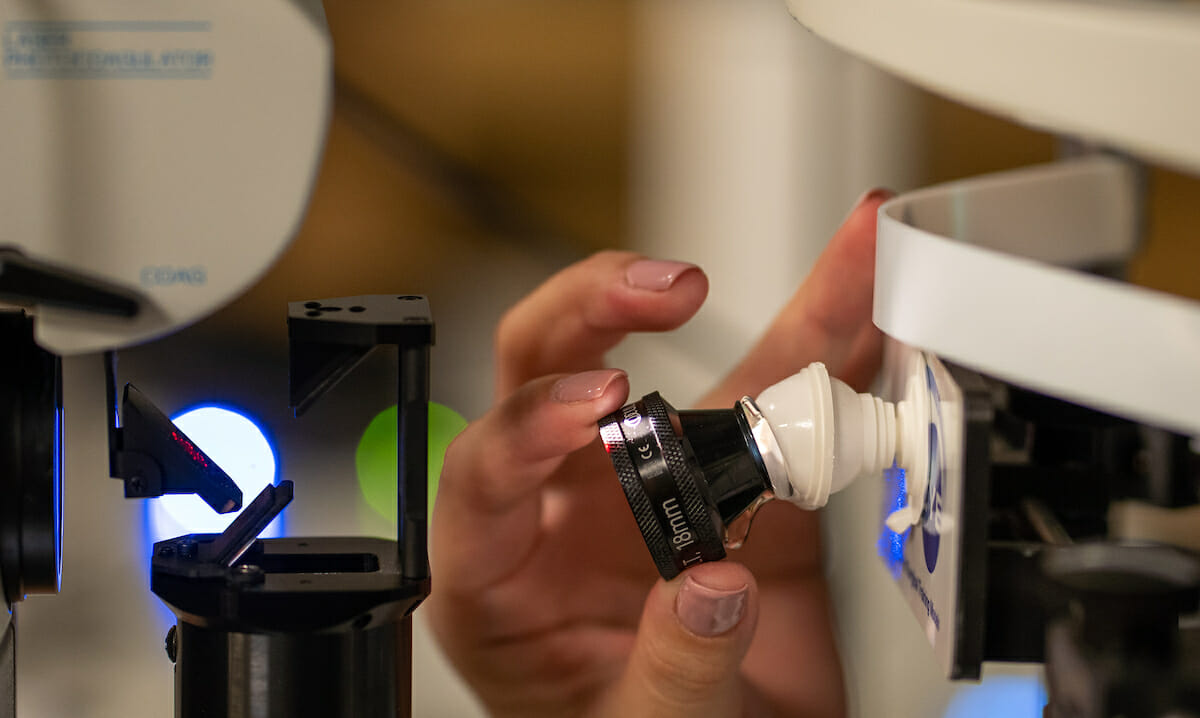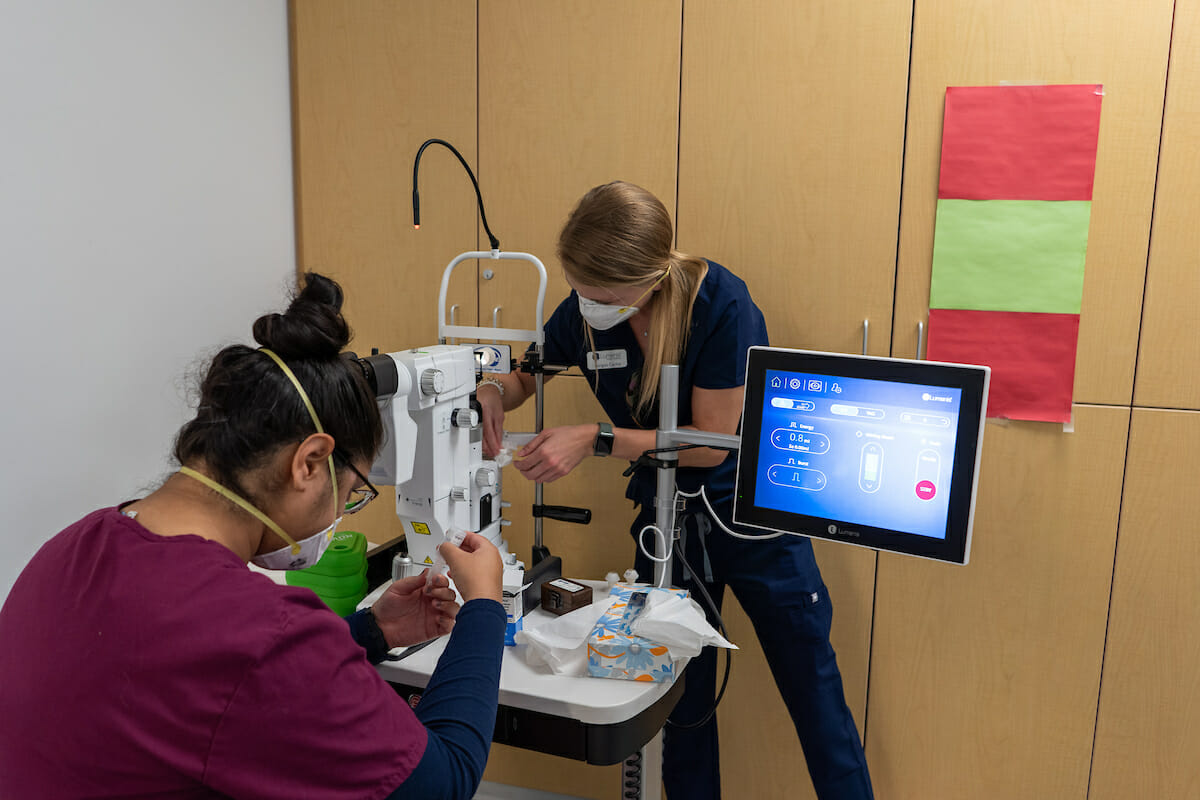
Research

Research Opportunities
Research Elective Courses
The College of Optometry research elective course offerings are a semester-long lab practicum course in which students work with one of the College of Optometry faculty on an independent research project.
Areas of research include eye disease development, optics, and binocular vision.
Students present their work to their peers. If you are interested in taking this course to fulfill your elective credit, please contact one of the faculty below to arrange a meeting. Enrollment requires faculty approval. If you have any questions about the course, please contact Dr. Cameron.
The following projects are available:
- Measuring visual acuity in adult zebrafish and comparison of retinal disease models
- Carotenoid metabolism in eye development and disease using zebrafish
- Examining visual dysfunction in an Alzheimer’s zebrafish model
- Electrophysiology of the zebrafish retina
Dr. Cameron would also be glad to assist conducting any research projects related to zebrafish visual function from students’ own ideas in this elective course.
The following projects are available:
- Investigating Ocular imaging particularly OCT and its use in glaucoma management
- Understanding age related effects on the eye particularly ocular biomechanics and retinal nerve fiber layer
The following projects are in progress:
- Spectacle lenses, contact lenses, and orthokeratology for myopia research
- Development of a novel corneal topography system, not based upon the Placido disk principle
- Change in wavefront aberrations with contact lenses, spectacle lenses, and orthokeratology (in collaboration with Dr. Shen)

